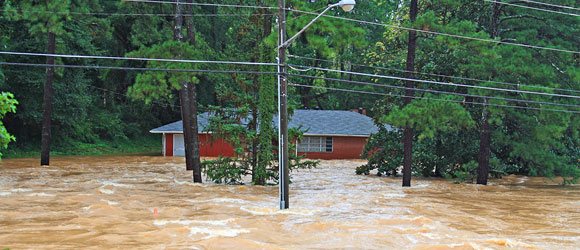Disaster Diplomacy: Earthquakes, Floods, & Other Disasters

Sadly, at any given moment disaster can strike. Recently we have seen Japan’s Kyushu region suffer two earthquakes. Ecuador’s coastal region was hit by a magnitude 7.8 earthquake. Both areas have had multiple aftershocks. The Houston area in Texas had severe floods. Prime Minister Abe of Japan noted during a press briefing that the U.S. military offered help. Foreign aid workers and experts have gone to Ecuador to help. In Houston, when first responders couldn’t reach everyone, neighbors took it upon themselves to help others evacuate. These are examples of Disaster Diplomacy at its best.
When disaster strikes and you have a relationship with someone in the affected country, what can you do? The initial reaction is to want to act, and to do so quickly. There are basically two kinds of support you can offer: symbolic or emotional, and concrete help, in the form of donations: money, equipment, food, water, clothes, supplies, and volunteers, including medical, technical, and other experts. Whatever the aid you can offer is, you want to make sure you help in ways that are effective and needed. CBS Sunday Morning provided key insight with the story Best Intentions. Here are seven more tips to consider:
- 1. Reach out to your contact. Call or send an email or letter expressing your concern, sympathy, and condolences as appropriate. Depending on the relationship this may be done at several levels–consider rank. You may choose to send a more personal note to your contact and a more official letter between CEOs. The mayors of Houston often sent such letters to mayors of sister cities, consular officials and other government leaders with whom they had relationships in times of distress. If you’re in a position to offer assistance, do so, but consult with your legal team and consider the precedent you may be setting.
- 2. Use reliable and reputable organizations to channel donations. When possible, don’t reinvent the wheel. Contribute to organizations which already have the experience and infrastructure in place to provide relief quickly and efficiently: the International Federation of Red Cross and Red Crescent Societies, Unicef, and Save the Children are just a few examples.
- 3. Consider the cultural practices and traditions of each country. Don’t be offended if your offer of help is not accepted. Some countries prefer to handle things internally, or do an assessment of needs before reaching out to select organizations for assistance.
- 4. When in doubt, ask! If you aren’t sure as to what the appropriate thing to do is, contact the country’s consulate, embassy, bilateral chamber of commerce, or even your city’s protocol office for suggestions.
- 5. Be practical: apply common sense. You don’t want to organize a clothing drive when tents and blankets are required. Usually, what is most desired are funds to be used as needed on the ground. It is usually more cost effective to purchase items needed in the area which also supports the local economy and saves time and the cost of transporting goods.
- 6. Prepare Yourself. As a business leader, one of the best things you can do for yourself, your family, and your company is to register with the U.S. State Department’s Smart Travel Enrollment Program when you travel, so they can reach you during natural disasters and other emergencies. The State Department could then advise you directly on the best course of action for getting assistance, notifying your family, leaving the country, etc.
- 7. Finally, prepare your company for the worst. As you take stock of the recent tragedies abroad, you should be reminded to review your organization’s own emergency preparedness plan. It’s also important to consider creating emergency plans for special events. If your organization is not equipped to plan for every contingency, there are companies that specialize in this. For major events this sort of insurance against chaos is a worthwhile investment.
In closing, I would like to thank the many friends, colleagues, clients, and vendors around the country and internationally who have reached out to ask whether my family and I were impacted by the floods in the Houston area. I was one of the fortunate ones. While the water in the ravine in the back of our home rose over 10 feet (3 meters), we suffered no damage. Your calls and emails of concern were greatly appreciated.
Protocol Pointer
Relationships are always important, but it is during difficult times that these can have the greatest impact and become enduring partnerships.
I would like to express my condolences to the people of Japan and Ecuador during this difficult time.

Trackback from your site.